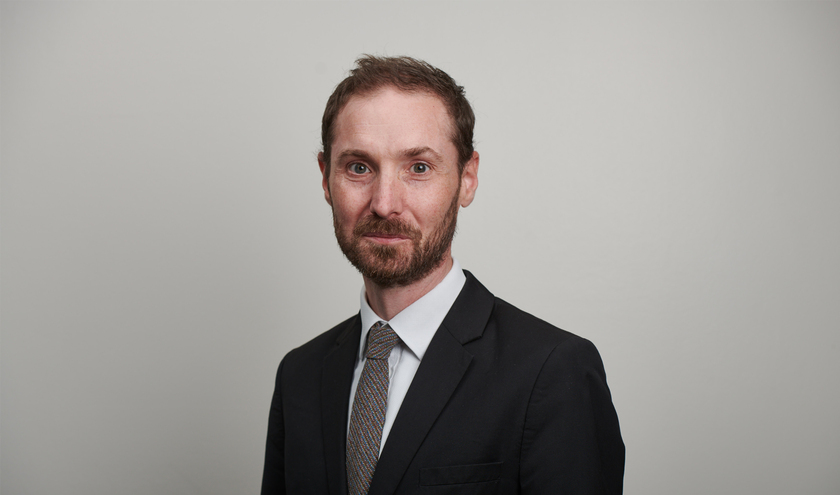Relocating responsibility and funding for public health to local authorities from the NHS in 2012 marked a milestone that was heralded as a significant extension of councils' powers.
But fast forward 12 years and the cash foundations underpinning public health are looking decidedly unsafe. A report from the Health Foundation, Options for restoring the public health grant, highlights that since 2015-16 the ringfenced public health grant to local authorities has been slashed by 28% per person in real terms.
Highlighting Labour's shift to prevention, he believes ‘the public health grant is a real exemplar of that, where you see something that offers a locally led and oriented perspective on tackling local population health needs'
‘It now stands at £3.6bn, equivalent to just 2.2% of the NHS England budget', the paper says. Even just returning the grant to the real-terms equivalent of 2015-16 per person levels would call for a £1.4bn real-terms increase per year, with a phased approach over a five-year period meaning total additional spend of £4.6bn in real terms.
But the report concludes any restoration should aim to address ‘longstanding inequalities in grant allocation between local authorities', requiring a £1.8bn real-terms increase per year or £5.5bn if phased over five years. And other approaches ‘would allow local public health teams to do more but would be more costly to deliver'.
Dr Adam Briggs is a senior policy fellow at the Health Foundation and the report's lead author. Speaking to The MJ ahead of this month's Budget, he stresses that the funding reductions need to be reversed: ‘The key message is the cuts need to be undone and the funding needs to be distributed more equitably. That's the bottom line.'
He adds: ‘And actually, if you look historically, the level of the public health grant never got to the scale that it was intended to get to before it started getting cut through austerity. So as a kind of narrative, the public health grant offers excellent value for money.'
Highlighting Labour's shift to prevention, he believes ‘the public health grant is a real exemplar of that, where you see something that offers a locally led and oriented perspective on tackling local population health needs'.
But how realistic is it to expect the scale of uplifts in funding set out as options in the report to start to see the light in the Budget and in the multi-year settlement already promised to local government?
He says one aim of the Health Foundation's report is to engage in the political reality of the financial situation the Government faces. ‘So to be able to say that we want a £2bn uplift in a single year on the public health grant may not be desperately realistic to achieve. But to say that over a five-year cycle you could achieve this genuine reversal in in the cuts of the grant, that you can also distribute it better in terms of population need, and you can do that within a cost template of over a five-year period of around £6bn. That actually becomes a more appealing prospect, right?'
He believes such an incremental approach ‘acknowledges the reality of the current fiscal situation the Government finds itself in, but it also acknowledges the fact that local authority led public health services can't turn a tap or a switch on and off, just like that'.
It takes time to design and commission the services that are best placed to meet local needs, he emphasises, in terms of ‘training, recruiting and identifying the right kind of skill resource that you might need to deliver, for example, an increase in sexual health service provision, or in drug and alcohol care teams, or whatever else it might be'. This becomes ‘absolutely doable' over the longer cycle, he adds.
Is it important that the Department for Health and Social Care's Advisory Committee on Resource Allocation's 2016 proposals – for an updated grant allocation formula that includes stronger weighting for the most deprived areas as measured by mortality rates in people younger than 75 – are implemented?
He responds: ‘I think it's really important that the formula is reviewed. But the point is that at the moment, the distribution doesn't recognise the changes in population need, a population demographic that local authorities have had to cope with, and particularly the differences in urban context versus rural context. And so anything that can realistically engage with that is going to be a good thing.'
If the opportunity arose to look at the formula again, he says ‘you would have the right experience and input from places such as the Faculty of Public Health and others into that decision making, and then end up in a better place'.
In conclusion, he says the public health grant spend must be used to meet public health needs and tackle inequalities, rather than being used to cross fund other services that are otherwise struggling.
He adds: ‘This isn't a way of compensating for the broader financial challenges that are facing children's services and other aspects of council responsibilities. This is one very small but very cost-effective part of the local government function.'


